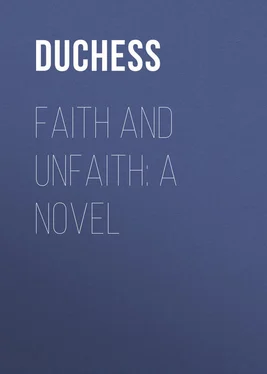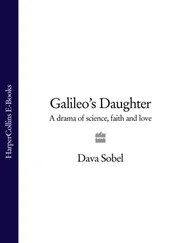Duchess - Faith and Unfaith - A Novel
Здесь есть возможность читать онлайн «Duchess - Faith and Unfaith - A Novel» — ознакомительный отрывок электронной книги совершенно бесплатно, а после прочтения отрывка купить полную версию. В некоторых случаях можно слушать аудио, скачать через торрент в формате fb2 и присутствует краткое содержание. Жанр: foreign_antique, foreign_prose, foreign_sf, на английском языке. Описание произведения, (предисловие) а так же отзывы посетителей доступны на портале библиотеки ЛибКат.
- Название:Faith and Unfaith: A Novel
- Автор:
- Жанр:
- Год:неизвестен
- ISBN:нет данных
- Рейтинг книги:3 / 5. Голосов: 1
-
Избранное:Добавить в избранное
- Отзывы:
-
Ваша оценка:
- 60
- 1
- 2
- 3
- 4
- 5
Faith and Unfaith: A Novel: краткое содержание, описание и аннотация
Предлагаем к чтению аннотацию, описание, краткое содержание или предисловие (зависит от того, что написал сам автор книги «Faith and Unfaith: A Novel»). Если вы не нашли необходимую информацию о книге — напишите в комментариях, мы постараемся отыскать её.
Faith and Unfaith: A Novel — читать онлайн ознакомительный отрывок
Ниже представлен текст книги, разбитый по страницам. Система сохранения места последней прочитанной страницы, позволяет с удобством читать онлайн бесплатно книгу «Faith and Unfaith: A Novel», без необходимости каждый раз заново искать на чём Вы остановились. Поставьте закладку, и сможете в любой момент перейти на страницу, на которой закончили чтение.
Интервал:
Закладка:
"I am glad to hear it. There is no worthier man in all the parish than John Annersley. I hope nothing will ever occur to grieve or sadden that good old man."
"I hope not, my lord," returns she, steadily, although his voice has meaning in it. In another moment she is gone.
"How does your farming go on, Dorian?" asks Lord Sartoris, presently, rousing himself from a puzzling revery.
"Quite in the model line," says Dorian, cheerful. "That Sawyer is an invaluable fellow. Does all the work, you know, – which is most satisfactory. Looks after the men, pays their wages, and takes all trouble off my shoulders. Never could understand what a perfect treasure is till I got him. Every one says I am most fortunate in my choice of a steward."
"I dare say. It is amazing the amount of information people possess about other people's servants. But you look after things yourself, of course? However faithful and trustworthy one's hirelings may be, one's own eyes should also be in the matter."
"Oh, of course," acquiesces Dorian, still cheerfully. "Nothing like personal supervision, and so on. Every now and then, you know, I do look over the accounts, and ask a few questions, and show myself very learned in drainages, and so forth. But I don't see that I gain much by it. Horrid stupid work, too," – with a yawn. "Luckily, Sawyer is one of the most knowing fellows in the world, or I suppose I should go to smash. He is up to everything, and talks like a book. Quite a pleasure, I give you my word, – almost a privilege, – to hear him converse on short-horns and some eccentric root they call mangels."
"It is possible to be too knowing," says his uncle, depreciatingly.
"Eh? oh, no; Sawyer is not that sort of person. He is quite straight all through. And he never worries me more than he can help. He looks after everything, and whatever he touches (metaphorically speaking) turns to gold. I'm sure anything like those pheasants – "
"Yes, yes, I dare say. But pheasants are not everything."
"Well, no; there are a few other things," says Dorian, amicably, – "notably, grouse. Why this undying hatred to Sawyer, my dear Arthur? In what has he been found wanting?"
"I think him a low, under-hand, sneaking sort of fellow," says Sartoris, unhesitatingly. "I should not keep him in my employ half an hour. However," relentingly, and somewhat sadly, "one cannot always judge by appearances."
They have reached the village by this time, and are walking leisurely through it. Almost as they reach the hotel that adorns the centre of the main street, they meet Mr. Redmond, the rector, looking as hearty and kindly as usual. Lord Sartoris, who has come down on purpose to meet him, having asked his question and received his answer, turns again and walks slowly homeward, Dorian still beside him.
As they again catch sight of the old mill, Sartoris says, quietly, with a laudable attempt at unconcern that would not have deceived the veriest infant, but is quite successful with Dorian, whose thoughts are far away, —
"What a nice girl that little Ruth has grown!"
"Awfully pretty girl," returns Dorian, carelessly.
"Yes," – gravely, – "very pretty; and I think – I hope – upright, as she is beautiful. Poor child, hers seems to me a very desolate lot. Far too well educated to associate with those of her own class, she is still cut off by the laws of caste from mixing with those above her. She has no friends, no mother, no sister, to love and sympathize with her."
"My dear Arthur, how you do agonize yourself!" says Dorian. "She has her father, and about as comfortable a time altogether as I know of."
"She reminds me of some lowly wayside flower," goes on the old man, musingly, heedless of the brilliant interlude, "raising its little head sadly among gay garden-plants that care not for her, whilst beyond the hedge that bounds her garden she can watch her own species grow and flourish in wild luxuriance. Her life can scarcely be called happy. There must always be a want, a craving for what can never be obtained. Surely the one that could bring sorrow to that pure heart, or tears to those gentle eyes, should be – "
"Asphyxiated," puts in Dorian, idly. He yawns languidly and pulls the head off a tall dandelion, that adorns the wayside, in a somewhat desultory fashion. The color in the older man's cheeks grows a shade deeper, and a gesture, as full of impatience as of displeasure, escapes him.
"There are some subjects," he says, with calm severity, "that it would be well to place beyond the reach of ridicule."
"Am I one of them?" says Dorian, lightly. Then, glancing at his uncle's face, he checks himself, and goes on quickly. "I beg your pardon, I'm sure. I have been saying something unlucky, as usual. Of course I agree with you on all points, Arthur, and think the man who could wilfully bring a blush to Ruth Annersley's cheek neither more nor less than a blackguard pur et simple . By the by, that last little homely phrase comes in badly there, doesn't it? Rather out of keeping with the vituperative noun, eh!"
"Rather," returns Sartoris, shortly. He drops his nephew's arm, and walks on in silence. As a rule, Dorian's careless humor suits him; it amuses and adds a piquancy to a life that without it (now that Dorian's society has become indispensable to him) would prove "flat, stale, and unprofitable." But to-day, he hardly knows why, – or, perhaps, hardly dares to know why, – his nephew's easy light-heartedness jars upon him, vexing him sorely.
As they turn the corner of the road and go down the hill, they meet Horace, coming towards them at a rapid pace. As he sees them, he slackens his speed and approaches more slowly.
"Just as well I met you," he says, with an airy laugh, "as my thoughts were running away with me, and Phœbus Apollo is in the ascendant: veritably he 'rules the roast.' This uphill work is trying on the lungs."
"Where have you been?" asks Dorian, just because he has nothing else to say, and it is such a bore to think.
"At Gowran."
"Ah! I'm going there now. You saw Clarissa, then?" says Sartoris, quickly. "When do you return to town, Horace?"
"To-morrow, I think, – I hope," says Horace; and, with a little nod on both sides, they part. But when the bend in the road again hides him from view, it would occur to a casual on-looker that Horace Branscombe's thoughts must once more have taken his physical powers into captivity, as his pace quickens, until it grows even swifter than it was before.
Sartoris goes leisurely down the hill, with Dorian beside him, whistling "Nancy Lee," in a manner highly satisfactory to himself, no doubt, but slightly out of tune. When Sartoris can bear this musical treat no longer, he breaks hurriedly into speech of a description that requires an answer.
"What a pretty girl Clarissa Peyton is! don't you think so?"
When Dorian has brought Miss Lee to a triumphant finish, with a flourish that would have raised murderous longings in the breast of Stephen Adams, he says, without undue enthusiasm, —
"Yes, she is about the best-looking woman I know."
"And as unaffected as she is beautiful. That is her principal charm. So thoroughly bred, too, in every thought and action. I never met so lovable a creature!"
"What a pity she can't hear you!" says Branscombe. "Though perhaps it is as well she can't. Adulation has a bad effect on some people."
"She is too earnest, too thorough, to be upset by flattery. I sometimes wonder if there are any like her in the world."
"Very few, I think," says Dorian, genially.
Another pause, somewhat longer than the last, and then Sartoris says, with some hesitation, "Do you never think of marrying, Dorian?"
"Often," says Branscombe, with an amused smile.
"Yet how seldom you touch on the matter! Why, when I was your age, I had seen at least twenty women I should have married, had they shown an answering regard for me."
Читать дальшеИнтервал:
Закладка:
Похожие книги на «Faith and Unfaith: A Novel»
Представляем Вашему вниманию похожие книги на «Faith and Unfaith: A Novel» списком для выбора. Мы отобрали схожую по названию и смыслу литературу в надежде предоставить читателям больше вариантов отыскать новые, интересные, ещё непрочитанные произведения.
Обсуждение, отзывы о книге «Faith and Unfaith: A Novel» и просто собственные мнения читателей. Оставьте ваши комментарии, напишите, что Вы думаете о произведении, его смысле или главных героях. Укажите что конкретно понравилось, а что нет, и почему Вы так считаете.






![Дональд Уэстлейк - Enough [A Travesty (novel) and Ordo (novelette)]](/books/416846/donald-uestlejk-enough-a-travesty-novel-and-or-thumb.webp)





